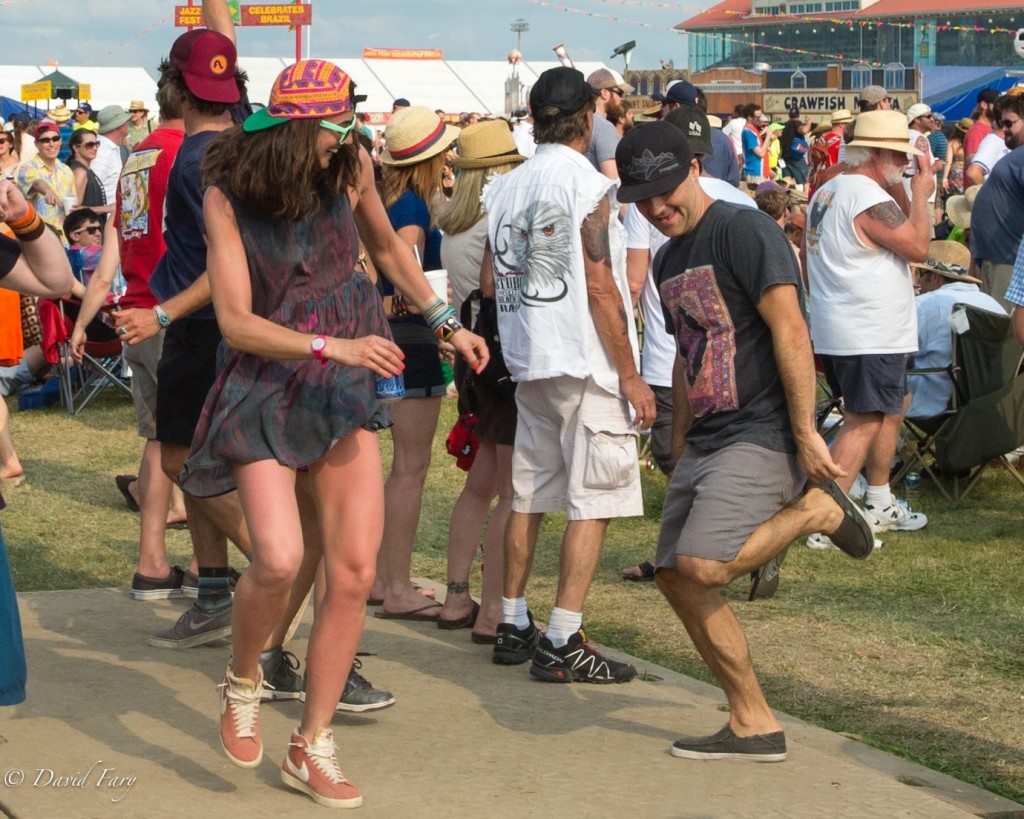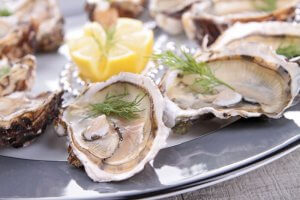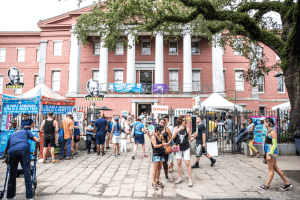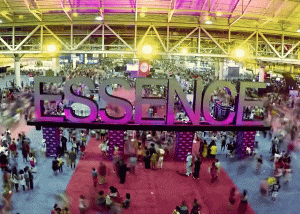A First-Timer’s Guide to the New Orleans Jazz Fest

New Orleans Jazz Fest Photo by David Fary
There are many jazz festivals the whole world over, yet there is only one of the genre in the city that birthed it: the New Orleans Jazz & Heritage Festival, which has been around for over five decades and still takes over the city during the last weekend in April, the first weekend in May, and pretty much all days in between (Thursday, April 24 – Sunday, May 4, 2025).
It is fair to say Mardi Gras and Jazz Fest are the two keystone entries of the New Orleans events calendar. Where Mardi Gras is a celebration with deep Catholic and pagan roots that is indelibly branded by the city of New Orleans, Jazz Fest is rather a celebration of New Orleans itself.
That’s the backstory on the “& Heritage” part of the description in the official Jazz Fest title: The event has become less about showcasing jazz per se, and more about showing off the city that gave us jazz.
Because New Orleans is so central to pop music, almost any act and genre you can imagine has strutted on Jazz Fest’s 14 stages — and yes, there are that many stages popping off at the Fair Grounds Race Course & Slots (1751 Gentilly Blvd.) during the 2025 Jazz Fest. As a result of this sheer scope and size, in many ways, Jazz Fest feels like too overwhelming of an event to properly tackle, especially for those who are attending for the first time.
Regarding the festival’s musical acts, there are plenty of commentators who think festival organizers have unfairly stretched the definition of what music falls under the jazz and heritage rubric. We’re not here to debate that topic, but rather point out that there is undoubtedly a wide variety of genre presence at Jazz Fest, which only adds to the looming sense of choice overload.
With all of that in mind, there are some sound tactics for making Jazz Fest more manageable. Here are some of our time-tested strategies.
Ride a Bike
While this choice isn’t going to work for everyone — some visitors simply don’t have urban cycling experience or are scared of the prospect — we can’t stress just how much biking can improve the Jazz Fest experience. Even the most diehard Jazz Fest boosters will admit parking can be a nightmare during the festival. Parking enforcement officers are on high alert — we’ve never seen the impound lot on Claiborne Avenue get quite so busy as it does during Jazz Fest.
Of course, you can pay for parking. Folks who live near the Fairgrounds will turn even the smallest plot of the backyard into an impromptu parking lot (rates vary, but around $30 per day seemed to be the going rate in the past).
There are other ways of outflanking the parking issue, including the official Jazz Fest Express shuttle, taxis (both cars and bicycle rickshaws), rideshare, and the streetcar. Note that if you take the streetcar, you’ll still have to walk about a half mile to the festival entrance. (Take the number 48 line that runs on Canal Street and get off at the final stop at City Park/Art Museum.)
But we really love getting to Jazz Fest on two non-motorized wheels. Bike lane infrastructure can now bring riders to the gates of Jazz Fest. If you’re staying in the French Quarter, the bike ride to the Fairgrounds covers a 10-15 minute straight shot up Esplanade Avenue.
Plus, there is extensive bicycle “parking” (overlooked by security staff) on site. While we can’t guarantee what the weather will be like during Jazz Fest weekends, in general, late April and early May form a lovely climate window in New Orleans.
In addition, being on a bicycle gives visitors a better sense of the city. You can see New Orleans at the street level without the loss of time walking might engender. There’s an intimacy to biking in the city that’s tough to replicate from a car.
Shape Your Cube
The Jazz Fest lineup is famously scheduled into “cubes” for attendees. Devising a schedule for seeing all of your favorite acts can be a fun logistical challenge, but don’t forget that the stages of Jazz Fest are spread out over a decently large area. If you’re in the middle of the crowd at one of the main stages, it can take about 10 or 15 minutes just to extricate yourself from the center of mass.
Note that Sundays and Thursdays always feel a little bit less crowded at the racetrack, although that “little bit less” is admittedly a relative number — there are no real “light” days at Jazz Fest.
The way you assemble your cube is up to you, but here are some pointers we’ve picked up on over the years:
- Stick to your cube, but don’t do so religiously. Part of the fun of Jazz Fest is simply letting the music take you wherever it wants to go.
- Don’t ignore smaller stages. We found one of our great unexpected Jazz Fest shows at the Kids Tent. We also always find the Fais Do-Do stage to be a consistently good break in our routine — basically, you can never go wrong dancing to Cajun or zydeco music.
- Visit the Gospel Tent at least once. We’ve consistently found that even those who know next to nothing about gospel music have their spirits lifted and their musical boundaries expanded in this venue.
Cool Off
It can get hot in Jazz Fest. A few good means of beating the heat include:
- Enjoying the air conditioning in the Grandstands
- Hitting the mist tents by the Gentilly Stage and #2 food vendor area
- Sitting down and relaxing in the vicinity of the Louisiana Folklife Village
- Getting strawberry lemonade and Mango Freeze! (And of course, hydrating with water)
- Staying out of the scrum for bigger headliners
Priorities, Priorities
While the price of Jazz Fest tickets continues to climb, the fact of the matter is you can still see some grade-A headliners for a bargain rate compared to similar (or even smaller) festivals. Many locals treat Jazz Fest as a chance to see big acts on the relative cheap. On the flip side, if you live in or near the city, you can see the New Orleans musicians throughout the year at local venues, which means there’s less pressure to see them on the Fairgrounds.
If you’re coming in from out of town, you may have the opposite scenario prioritized — you can see big-name acts anywhere, but this is your best chance of seeing Louisiana music on its native soil. In addition, smaller local acts often occupy stages that are less crowded, and everyone enjoys a break from the seething masses.
With all of that said, don’t forget that during the “off days” in between the two festival weekends, many smaller and mid-sized acts will be playing gigs around town. If you miss them at the Fest, you may catch them on Frenchmen Street.
With that said, there’s something about seeing local acts at Jazz Fest. The big-name headliners are used to huge audiences. A local Louisiana act would be playing to wow the world, and some of those sets end up being nothing short of legendary.
What to Know About the 2025 Jazz Fest
- Jazz Fest expanded to eight days last year, adding the opening day of Thursday to the schedule. It’s keeping it this year as well.
- Jazz Fest went cashless two years ago, and remains so. Ticket, food, beverage, craft, and merchandise booths no longer accept cash payments. If you come to the event with only cash, the Festival will offer two cash exchange booths near key vending locations so you can get a prepaid card for your cash.
- Like last year, this year, Jazz Fest features over 5,000 musicians across 14 stages.
- Since last year, the festival remains the largest one in its history (it was established in 1970). Eight is the most number of days for the event, and this year expect 60 vendors, offering over 200 different food items.
- Single-day tickets are $89 in advance (through April 8) and $105 at the gate on both Thursdays, and $119 and $135, respectively, on weekends. Tickets for children ages 2-10 are $5 at the gate.
- “Locals Thursday” will be April 24 or May 1 this year (you can pick one day only), with tickets at $50 in advance and $60 at the gate for Louisiana residents. There are also discounted options for local residents for multiple-day passes and single-day entry beyond Thursdays.
- Last year Jazz Fest introduced a 4-day GA+ weekend pass with access to an exclusive GA+ lounge with private restrooms, a full-service bar, and a shaded area to relax. The package is $679 for either weekend this year.
- Headliners include Pearl Jam, Lil Wayne with The Roots, Dave Matthews Band, Lenny Kravitz, Luke Combs, My Morning Jacket, Kacey Musgraves, plus hundreds more artists.
- This year, Jazz Fest will celebrate Mexico’s musical and cultural diversity at the Expedia Cultural Exchange Pavilion. Mexico’s own Santana, chart-topping Banda MS, and Grammy winner Lila Downs headline Jazz Fest’s tribute to Mexico, joined by 19 bands from Mexico — from mariachi to marimba — and more.
- The Jazz & Heritage Gala kicks off Jazz Fest with the celebration of Louisiana music and cuisine on Wednesday, April 23, 2025, at Generations Hall (310 Andrew Higgins Blvd.).
Coming to Jazz Fest This Year?
See the 2024 Jazz Fest music lineup and food offerings on the event’s website. And be sure to check out our resource for French Quarter Hotels!






